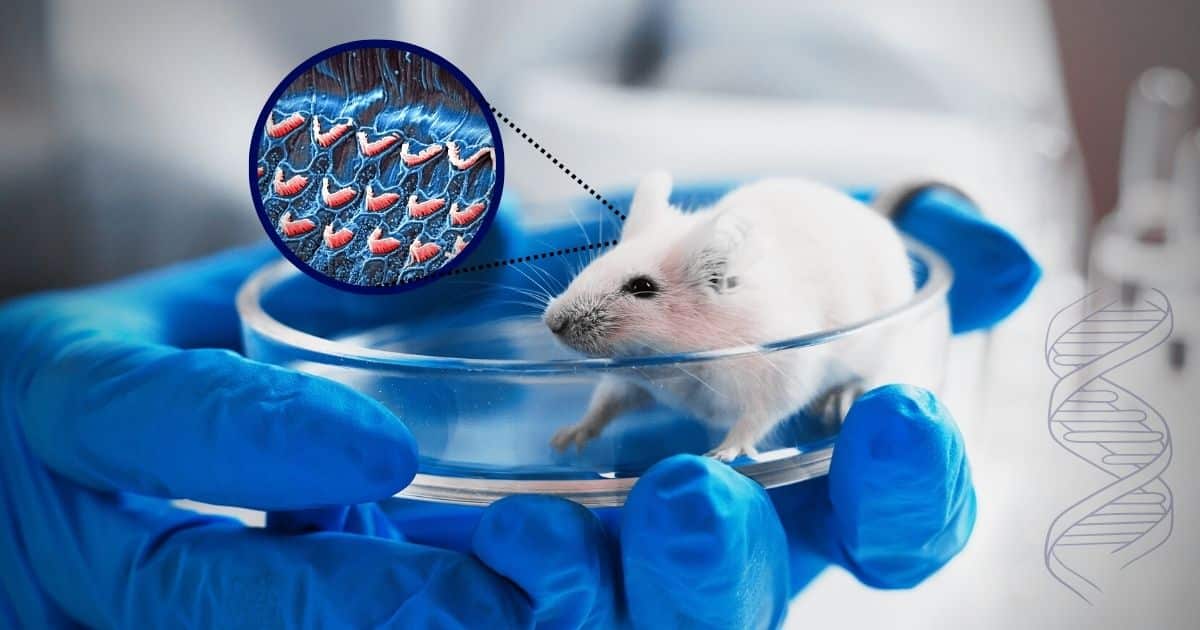LONDON, UNITED KINGDOM — In a groundbreaking achievement, researchers at the Institute of Psychiatry, Psychology & Neuroscience (IoPPN) at King’s College London have successfully restored hearing abilities in mice with a genetic approach, offering potential insights into the reversal of hearing loss.
The study, published in Proceedings of the National Academy of Sciences (PNAS), focused on mice with a defective Spns2 gene and demonstrated the possibility of reversing hearing loss resulting from reduced gene activity.
Hearing loss affects a significant portion of the aging population, with over half of adults in their 70s experiencing varying degrees of impairment. Beyond the challenge of communication, impaired hearing has been linked to adverse mental health effects, including depression and cognitive decline. Moreover, it stands as a major risk factor of dementia, underscoring the urgent need for effective medical interventions that can slow down or even reverse hearing loss.
Gene Therapy to Reverse Hearing Loss
The researchers at IoPPN embarked on a mission to tackle this issue by targeting the Spns2 gene. By using a genetic approach, they managed to restore hearing in mice that had a non-functioning Spns2 gene. The treatment involved providing the mice with a specialized enzyme at different stages of their lives to activate the gene. Remarkably, the results indicated a significant improvement in the hearing abilities of these mice, particularly in the low and middle frequency ranges.
One key finding of the study was the impact of age on the effectiveness of the gene activation. The researchers observed that activating the Spns2 gene at a younger age yielded the most substantial positive outcomes. As the intervention was delayed, the restorative effects gradually diminished. This observation underscores the importance of early intervention in potential future therapies for hearing loss.
Professor Karen Steel, a leading expert in Sensory Function at King’s IoPPN and the senior author of the study, commented on the significance of their findings:
“Degenerative diseases such as progressive hearing loss are often believed to be irreversible, but we have shown that at least one type of inner ear dysfunction can be reversed. We used a genetic method to show this reversal as a proof-of-concept in mice, but the positive results should encourage research into methods like gene therapy or drugs to reactivate hearing in people with a similar type of hearing loss.”
Dr. Elisa Martelletti, the study’s first author, shared her excitement about the outcomes. “Seeing the once-deaf mice respond to sounds after treatment was truly thrilling. It was a pivotal moment, demonstrating the tangible potential to reverse hearing loss caused by defective genes. This groundbreaking proof-of-concept study unlocks new possibilities for future research, sparking hope for the development of treatments for hearing loss.”
The study was made possible through funding support from various sources, including the Medical Research Council, Wellcome, and Decibel Therapeutics Inc.
As scientists continue to explore innovative approaches, there is growing anticipation that similar breakthroughs could eventually translate into transformative treatments for individuals suffering from hearing impairment.
Reference:
- Elisa Martelletti, Neil J. Ingham, Karen P. Steel. Reversal of an existing hearing loss by gene activation in Spns2 mutant mice. Proceedings of the National Academy of Sciences, 2023; 120 (34) DOI: 10.1073/pnas.2307355120






